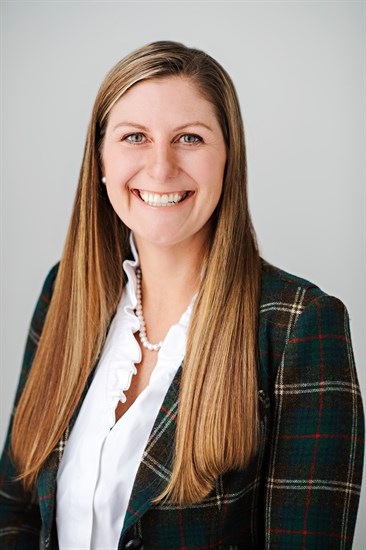
File photo.
Image Credit: Pixabay
January 09, 2021 - 6:00 PM
Kelowna will soon be home to one of the country's only mental health centres treating patients with psychedelic drugs more commonly associated with 1960s hippies.
Canadian company Mind Cure Health is planning to open its first clinic offering psychedelic-assisted mental health therapy in downtown Kelowna in May.
The Mind Cure Health Centre will offer treatments using psilocybin, the active ingredient in magic mushrooms, along with ketamine, an anesthetic often used as a party drug.
The clinic is the brainchild of former Kelowna resident and entrepreneur Kelsey Ramsden, who co-founded Mind Cure Health in early 2020.
"There's a spectrum of opportunities for psychedelic medicines to be of service to people," Ramsden said. "A lot of psychedelics are being utilized to allow the individual to witness difficult experiences or seek to explore challenging things in a way that allows them... to get through it."
Ramsden said psilocybin and ketamine are being used to treat post-traumatic stress disorder, depression, and anxiety, as well as neuroregeneration and pain.
While the treatments are relatively new, medical research into treating mental health with psychedelics has been going on for decades and has ramped up in the last 20 years or so.
"We now have a really good understanding of the kind of outcomes people can have with psychedelics," Ramsden said.
Ketamine patients would visit roughly half-a-dozen times, much in the same way they would visit any regular therapist.
Ramsden said a regular session would involve a person seated in a chair or lying on a couch in the same way people would in a therapist's office. A person is given headphones with music specifically designed for the experience and an eye mask to block out any distractions. A patient is then administered the psychedelic drug.
"For many people, the experience is, depending on the medicine, one that we call like watching a movie," Ramsden said.
Depending on why the person is there, the therapist will then address their issues.
"Sometimes that involves speaking with the therapist who's there, sometimes that involves being present with yourself and the psychedelic experience," Ramsden said. "And (at) the conclusion of that experience you walk out like any regular therapy session... with some understanding and a clear and better way forward."
Ramsden says one of the questions people always ask is whether it's like when they were at college and took magic mushrooms?
No, is the short answer.
"It's not a party, and you're not left to your own device to sit in a room and trip out," she said. "It's really is a highly protocoled and medical... experience."
While many aspects of the treatment are very similar to regular therapy, getting access to it is far different.
The clinic will not be able to give out the therapy freely to anyone, and it's the patients that have to apply to the Federal Government for permission to receive treatment.
Legally it's complicated, but patients can apply for an exemption under the Canada Health Act. It's part of the legislation that allows people exemptions to access medication even if those drugs are illegal.
So while psilocybin is illegal in Canada for medical use, Health Canada has granted patients exemptions to use the drug. It issued one of the first exemptions in August 2020.
Ramsden said just like any other therapy, the clinic will screen patients first, and if the therapy is right for them, help them apply for the exemption.
Some patients may even be able to get the treatment covered under their benefits, although currently, Ramsden said it's on a case by case basis depending on the provider.
While it's hard not to associate the treatment with 60s acid heads listening to Lucy in the Sky with Diamonds, the reality is far different. That image also appears to have hampered the research.
"The challenge was there was no money to fund (research) because it had this stigma," she said. "If psychedelics never had the baggage of the 60s it wouldn't be a conversation, it would just be another medicine that people utilized. My great hope is that instead of tagging it to something folks did in college, we can tag it to the medical results coming out of... (research) institutions."
Ramsden said it was her own experience with psychedelic-assisted therapy that made her decide to start the business.
"I'm a 44-year-old mother of three children and I've spent a good part of my life challenged by, not extreme mental disease, but enough mental strife, that over time I thought there must be a better way," she said.
Ramsden is private about where she received treatment but psychedelic-assisted therapy does exist in Europe and across the U.S. Psychedelic-assisted therapy company Field Trip Health has a centre in Toronto, as well as several in the U.S. and one in Europe.
Ramsden believes Mind Cure Health Kelowna centre will be one of only two psychedelic-assisted therapy centres in Canada. Along with the clinic, the facility will also house a research laboratory. Ramsden, who now lives in London, Ontario, says the company looked across the country but settled on Kelowna as the location to open its first clinic.
While people may draw similarities to the recently legalized cannabis industry, Ramsden doesn't like the comparison.
"Unlike cannabis legalization, we have no interest in selling psychedelic medicines onto the street, this is the advancement of the medical practice of trying psychedelic medicines in a medical practice," she said.
Ramsden won't as yet give a precise address but said The Mind Cure Health Centre will be located downtown Kelowna near the hospital. The centre is due to open in May.
For more information on Mind Cure Health go here.

Co-founder of Mind Cure Health, Kelsey Ramsden.
Image Credit: Jack Taylor PR
To contact a reporter for this story, email Ben Bulmer or call (250) 309-5230 or email the editor. You can also submit photos, videos or news tips to the newsroom and be entered to win a monthly prize draw.
We welcome your comments and opinions on our stories but play nice. We won't censor or delete comments unless they contain off-topic statements or links, unnecessary vulgarity, false facts, spam or obviously fake profiles. If you have any concerns about what you see in comments, email the editor in the link above.
News from © iNFOnews, 2021